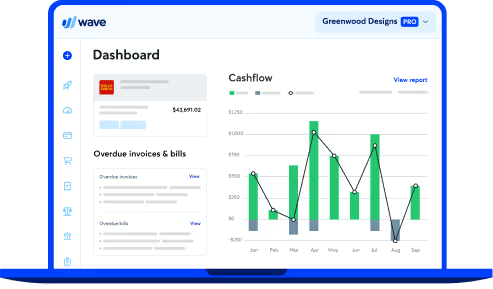
Small business lending: The pros and cons of loans
When you take the leap into entrepreneurship, you may not have the capital you need to get your business off the ground—after all, the U.S. Small Business Administration says it costs entrepreneurs an average of $1,000-$5,000 to start most kinds of ventures from scratch.
Entrepreneurs with established businesses may also need a sudden influx of cash to keep operations going. Whether it’s a slow sales season or the desire to expand your operations, your business may not have enough cash flow to cover unexpected major expenses.
One option you can explore to cover major cash flow issues is taking out a small business loan. While this isn’t the only choice for an entrepreneur in need of funds, it’s certainly worth looking into to see if it suits your needs.
Not sure how to proceed with a small business loan? Read on for details so you can make an informed decision about the advantages and drawbacks for small business loans, what you need to apply for one, and additional tips to help you move forward with this funding option.
What are small business loans?
Small business loans are funds borrowed from a lender like a bank that must be repaid with interest. And it’s one of the most common ways to fund a business. A recent study from the U.S. Consumer Financial Protection Bureau showed that small business lending is quickly expanding—in 2017, data estimated the market had reached $1.4 trillion. The agency report also showed that credit from banks accounted for 36%—or $504 billion—of that number.
Small business loans are typically lower interest (especially compared to credit cards) and offer more flexible terms than many other typical loans. You can approach a traditional financial institution like a national bank to apply for one of these loans, or you can lean on more local sources such as a nearby credit union.
Are small business loans right for your business?
While small business loans are one of the most popular funding options available to entrepreneurs, like any form of borrowed money, they boast a number of pros and cons that need to be considered to know if loans are right for your business.
Advantages of small business loans
There are plenty of reasons that many entrepreneurs lean on small business loans to start or grow their operations, including:
- Convenience. Every town has a bank or financial institution, and there are also many online lenders that offer small business loans. That means it’s convenient and relatively easy to approach a lender for this type of funding.
- Businesses can access large amounts of capital. Depending on the type of small business loan and the intended purpose for the funds, entrepreneurs can borrow large sums of money to start or run their business. For example, the U.S. Small Business Administration (SBA) showed that the average amount business owners borrowed through its 7(a) loan program in 2016 was $417,316. That average amount ballooned to $600,000 for small business loans from national banks in 2016.
- Lower interest rates. Business owners with good credit scores can typically get a relatively low borrowing rate on small business loans. The interest rate will depend on the amount borrowed, the entrepreneur’s credit score, and a few other factors, but traditional lenders like banks or credit unions usually offer annual percentage rates (APRs) ranging from 4% to 13%, while online lenders can have APRs from 7% to over 100%. Compare that to average credit card interest rates, which were around 19.88% for borrowers with good credit in 2018.
- Different types of loans for different needs. Not all small business loans are created equal. There are a handful of different loans to meet a variety of needs, which is a boon for small businesses. For example, SBA 7(a) loans and SBA Express loans can be used for a wide variety of purposes, including growth capital and refinancing. For real estate or heavy equipment or machinery, entrepreneurs can lean on CDC/504 loans. The SBA also works with a variety of nonprofits to offer microloans for amounts ranging from $1,000 to $50,000.
Drawbacks of small business loans
Although small business loans have plenty of advantages that make them enticing for business owners, they also have a few downsides:
- Interest rates depend on your credit score. While banks often offer lower interest rates than other funding options (like credit cards), it’s not always easy to get those low repayment rates. Typically, the interest rate banks offer depend on your credit score—so if you have a below-average rating, you’re less likely to get that low interest rate. That means you pay more in the long run for the privilege of borrowing the bank’s money.
- Lenders often require collateral. To ensure their investment is secure, many financial institutions require business owners to offer some form of collateral in case you can’t make your payments. For many entrepreneurs, they have to use personal assets as collateral for business loans. That means if you put your home up as collateral on a small business loan, if your business fails and you can’t make payments, you’re in danger of losing your house.
- Banks prefer to lend to established businesses. If you’re a fresh-faced entrepreneur just starting out, it’s often more difficult for you to obtain a small business loan from a traditional lender like a bank. To ensure they’ll be repaid on time, financial institutions like to lend to businesses that can show them signs of success (i.e., sales statements or revenue projections). This is challenging for upstart companies that haven’t made any revenue yet.
Moving forward with a small business loan
Now that you have a grasp on the basics of small business loans, you can make an informed decision about whether this funding option might be right for your needs and set forth on finding a loan for your business.
If you want to explore more funding options for your small business, read up on the paperwork you’ll need to get a small business loan.
(and create unique links with checkouts)
*While subscribed to Wave’s Pro Plan, get 2.9% + $0 (Visa, Mastercard, Discover) and 3.4% + $0 (Amex) per transaction for the first 10 transactions of each month of your subscription, then 2.9% + $0.60 (Visa, Mastercard, Discover) and 3.4% + $0.60 (Amex) per transaction. Discover processing is only available to US customers. See full terms and conditions for the US and Canada. See Wave’s Terms of Service for more information.
The information and tips shared on this blog are meant to be used as learning and personal development tools as you launch, run and grow your business. While a good place to start, these articles should not take the place of personalized advice from professionals. As our lawyers would say: “All content on Wave’s blog is intended for informational purposes only. It should not be considered legal or financial advice.” Additionally, Wave is the legal copyright holder of all materials on the blog, and others cannot re-use or publish it without our written consent.


























